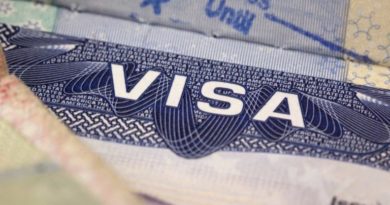ASIANGEOPOLITICS-China’s 9-Line | MANILA- Respect arbitral ruling, China told
The Hague
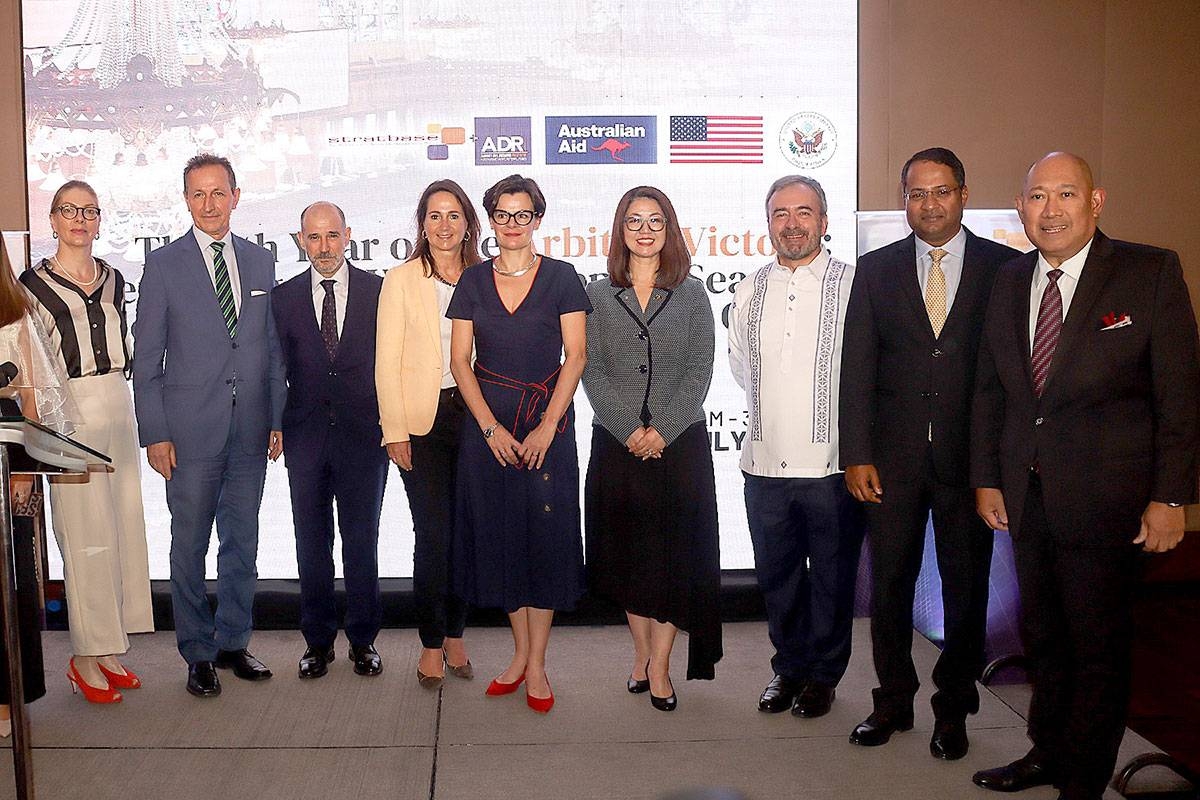
.
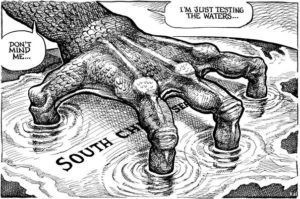
(UPDATE) MARKING the seventh anniversary of the arbitral tribunal ruling that favored the Philippines in its case against China in the South China Sea (SCS), the country’s allies called on China to comply with the decision to maintain freedom of navigation in the Indo-Pacific.
In a forum organized by Stratbase ADRi, Ambassadors Hae Kyong Yu PSM (Australia), Koshikawa Kazuhiko (Japan), Luc Veron (European Union Mission to the Philippines), Michèle Boccoz (France), Laure Beaufils (United Kingdom), Shambhu Kumaran (India), and MaryKay Carlson (United States) reiterated their support for the arbitral award that declared China’s expansive claims in the SCS through its nine-dash line policy “has no legal basis.”
Foreign Affairs Secretary Enrique Manalo on Tuesday reiterated that the award was final and China’s claims baseless.
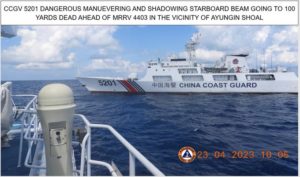
“These findings are no longer within the reach of denial and rebuttal, and are conclusive as they are indisputable,” Manalo said in a statement.
Following a heated standoff with China, the Philippines in 2013 filed a case before the Permanent Court of Arbitration in The Hague seeking clarification of its sovereign entitlements under international law.
The Department of Foreign Affairs (DFA) has launched a microsite to commemorate the occasion
The DFA said the Philippines’ commitment to an independent foreign policy goes beyond the SCS.
“It encompasses all aspects of the Philippines’ relationships with countries, from trade to security to cultural exchange,” said Foreign Affairs Undersecretary for Bilateral Relations and Asean Affairs Ma. Theresa Lazaro
“We are also supporting the Philippines’ candidature to the UN Security Council for the 2027-2028 period. There is simply no alternative to the strict adherence to the rule of law,” Boccoz said.
“In that regard, through the 2016 Award, the Philippines [upheld] the highest standards. This historical milestone paves the way for the peaceful settlement of disputes in the South China Sea,” Boccoz added.
Yu said it is as important as ever that the parties abide by the 2016 South China Sea arbitral award.
“So, Australia’s actions are guided by our desire to support our partners, enhance maritime security and uphold international law,” Yu said.
Japanese Foreign Minister Hayashi Yoshimasa said Japan renews its objection to maritime claims in the South China Sea that are inconsistent with the United Nations Convention on the Law of the Sea (Unclos) and “remains seriously concerned about the current situation.”
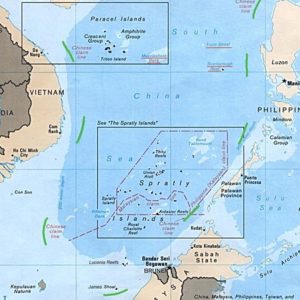
In a statement shared by the Japanese Embassy in Manila, Hayashi said: “Japan strongly hopes that the parties’ compliance with the award will lead to the peaceful settlement of disputes in the South China Sea. The claim by China that it will not accept the award is against the principle of peaceful settlement of disputes in accordance with international law, in particular Unclos, and undermines the rule of law as a fundamental value of the international community.”
Koshikawa said Japan vowed to double its effort to support Philippine maritime law enforcement.
“Our defense cooperation has also been enhanced recently, and we are working on a new framework, including what we call a reciprocal access agreement, or a visiting force agreement,” Koshikawa said.
Kumaran, meanwhile, said that while all countries have an obligation to respect international law, bigger countries have a larger obligation to respect them.
“And that, in adhering to agreements that have already been signed and in implementing them, is the real test of state behavior. Unfortunately, that has not always been the case in our region,” Kumaran added.
Veron said upholding international laws, including Unclos and the peaceful settlement of disputes, is the basis for peace and stability in Asia and elsewhere.
Invigorated
The Armed Forces of the Philippines (AFP) Western Command, the frontliner in enforcing the arbitral ruling, said it is invigorated by the fact that the decision is now part of international law, is recognized by the international community and has become the basis for policies and actions in the WPS.
“The 2016 PCA ruling gave credence and validation to Philippine sovereignty, sovereign rights and entitlements in the West Philippine Sea,” Vice Admiral Alberto Carlos, Commander of the AFP Western Command, said in a statement.
“In our remotest outposts at sea, very few dare to go because of the unpredictability of the temperament of the forces of man and nature,” Carlos said.
“There, the Wescom soldiers raise the Philippine Flag without fail and proudly fly, sail and stand guard to defend what is definitively ours,” he added.
Retired justice Antonio Carpio said he is optimistic that the Philippines will get support from the European Union and members of the G7 if it elevates the West Philippine Sea issue before the UN General Assembly.
In the Senate, Sen. Jose “Jinggoy” Estrada, Chairman of the Committee on National Defense and Security, Peace, Unification and Reconciliation, said that the Arbitral Tribunal ruling is not only a victory for the Philippines but also a triumph for international law and the principle of sovereignty.
“On this day, we commemorate the Arbitral Tribunal ruling that unequivocally upheld our country’s rights and claims over certain areas in the West Philippine Sea, while rejecting China’s expansive maritime claims. It was not only a victory for the Philippines but also a triumph for international law and the principle of sovereignty,” said Estrada in a statement.
“As a nation, we must persist in asserting our claims and defending our interests in accordance with international law,” Estrada added.
.

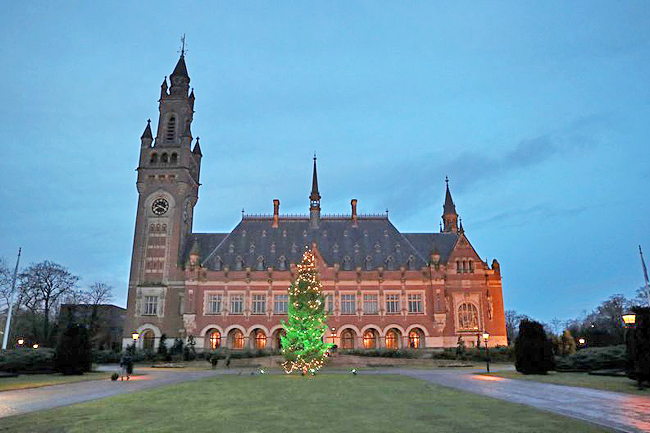
 Memento Maxima Digital Marketing
Memento Maxima Digital Marketing Memento Maxima Digital Marketing
Memento Maxima Digital Marketing






